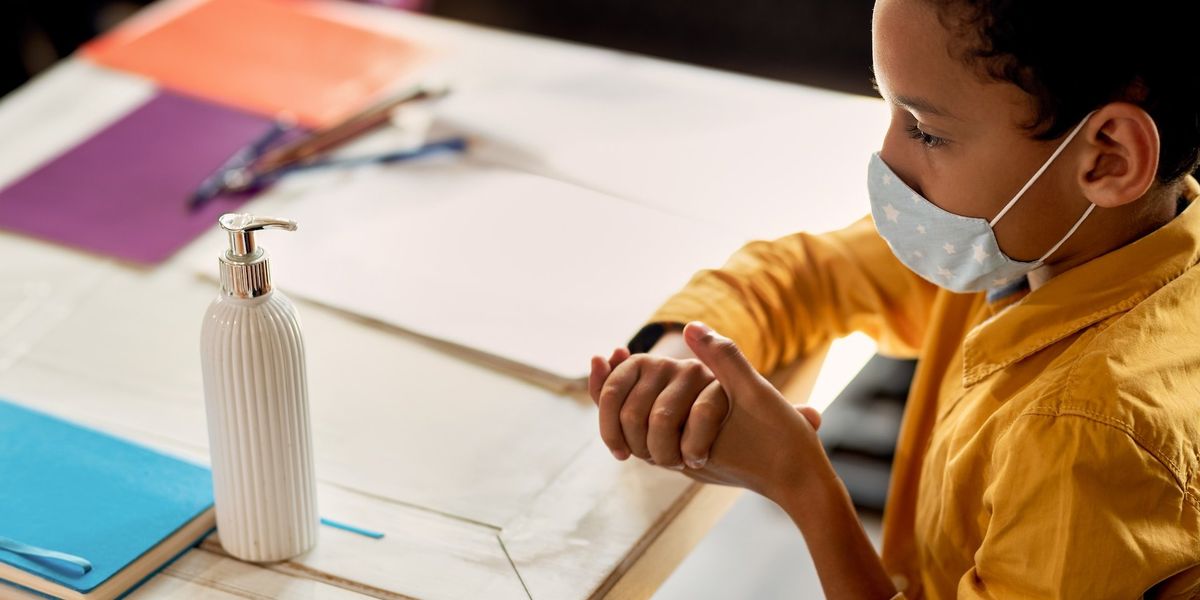
Disinfectants have had a moment since the COVID-19 pandemic began — and scientists are warning that this widespread use is spurring health problems, antimicrobial resistance and harming the environment.
“It’s ironic that the chemicals we’re deploying in vain for one health crisis are actually fueling another,” Erica Hartmann, a co-author of a new study examining the dangers of disinfectants and an associate professor of civil and environmental engineering at Northwestern University, said in a statement.
Hartmann and colleagues’ new study, published today in Environmental Science & Technology, examines quaternary ammonium compounds, or quats, which are used in disinfectants and personal care products. They reviewed the existing environmental and human health science on quats, which have been used much more since the pandemic began, and found that the compounds are linked to asthma, dermatitis, inflammation, infertility, birth defects and other problems. They can also harm aquatic life and cause antimicrobial resistance, which can make drug-resistant viruses and bacteria.
“Antimicrobial resistance was already contributing to millions of deaths per year before the pandemic, Hartmann said. “Overzealous disinfection, especially with products containing [quats], threaten to make it worse.”
Quat use and exposure

Quats can be found in disinfectants, baby wipes, eye drops, hair conditioners, fabric softeners and other products. There was a spike of disinfectant use when the COVID-19 pandemic began, increasing exposure, and researchers saw an associated spike in quats in people. People are mostly exposed via their skin and breathing quats in, but food and water could be other potential sources of exposure. Certain professions, including housekeepers, food or medical equipment preparation, dental assistants and nurses, are more highly exposed. Children and teachers may also have elevated exposure.
“Disinfectant wipes containing [quats] are often used on children’s school desks, hospital exam tables and in homes where they remain on these surfaces and in the air,” Courtney Carignan, a co-author and assistant professor at Michigan State University, said in a statement.
The most common quat is benzalkonium chloride, but if you see ingredients on labels that end in “ammonium chloride,” there are probably quats in the product. The authors point out that U.S. regulation varies — pesticides, for example, list quats, while paints do not. Most quats are unregulated, and so are not tested for health impacts. This makes it a challenge to tease out how much people are exposed or what the health impacts are.
While the feds haven’t tested the compound, academic researchers have linked the chemicals to multiple health problems, and the authors point out that there is evidence going back more than 70 years that the chemicals spur antimicrobial resistance.
“Antimicrobial resistance was already contributing to millions of deaths per year before the pandemic. Overzealous disinfection, especially with products containing [quats], threaten to make it worse,” Hartmann said.
Using safer cleaning products
Anastasia Swearingen, director of the Center for Biocide Chemistries, which is part of the American Chemistry Council, told EHN in an email that quats have been “rigorously evaluated for their human health and environmental safety and remain important chemistries used to protect public health.”
Quats “also help preserve products and improve product sustainability. While disinfection is not always necessary, there are many important government guidelines, rules and disinfection protocols in place to reduce outbreaks of infectious diseases,” she added.
However, the authors of the new study recommend not using quat-containing compounds when the chemicals are unnecessary. Soap and water usually do the trick — and if you need a disinfectant, University of Massachusetts Lowell has a guide to safer products.
Related: How to shop for cleaning products – while avoiding toxics
“Drastically reducing many uses of QACs won’t spread COVID-19,” Carol Kwiatkowski, a co-author and scientist at the Green Science Policy Institute, said in a statement. “In fact, it will make our homes, classrooms, offices, and other shared spaces healthier.”
Read the full study at Environmental Science & Technology.

